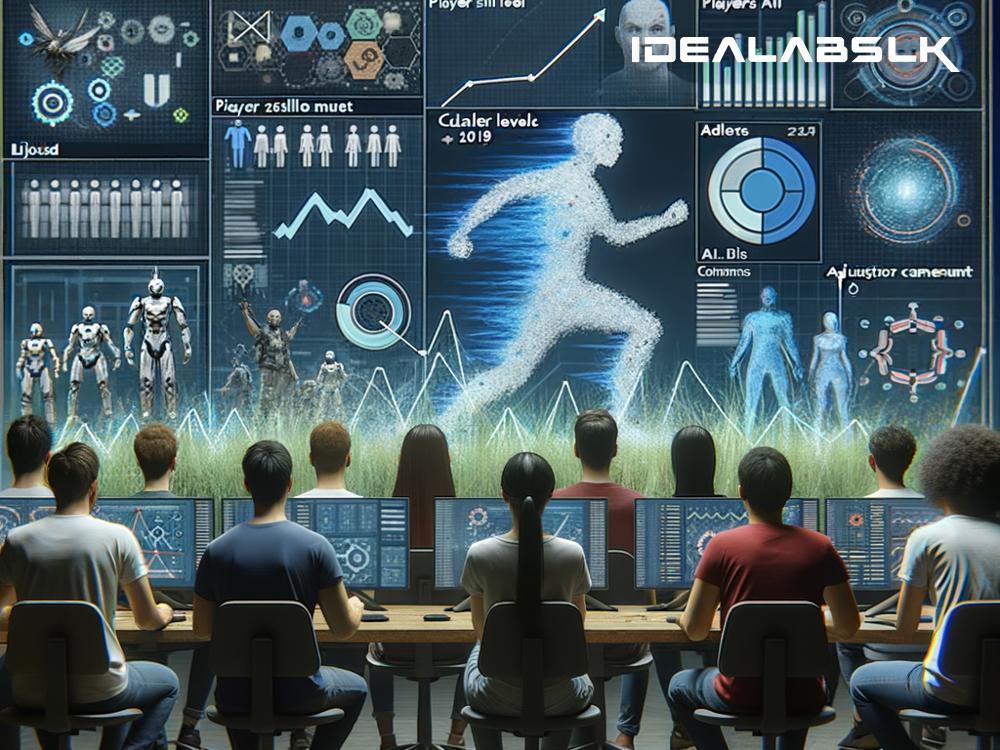AI and Game Balance: The Future of Personalized Gaming in 2025
As the sun sets on the year 2025, the gaming landscape is witnessing a revolution, thanks to the incredible advancements in Artificial Intelligence (AI). Gone are the days when games offered a one-size-fits-all difficulty setting that either made you breeze through levels or bang your head against the proverbial brick wall. Today, AI is changing how games adjust their difficulty and challenge, offering a personalized gaming experience that adapts to you, the player. Let’s explore how AI is redefining game balance and why it's a game-changer for players of all skill levels.
Understanding the AI Revolution in Gaming
First things first, it's crucial to grasp what we mean by AI in this context. AI, or Artificial Intelligence, refers to computer systems designed to imitate human intelligence. They learn from data and patterns to make decisions, predictions, or adapt to new situations. In gaming, AI is not just about creating smart opponents. It's increasingly about enhancing the player experience, making it more engaging and fitting for everyone.
Personalized Difficulty: A New Standard
The cornerstone of this revolution is personalized difficulty settings. In the past, games traditionally offered static difficulty levels: easy, medium, or hard. You picked one and stuck with it, regardless of how your skill level evolved. But let's be honest, not everyone's learning curve is the same. Some players excel quickly, while others take their time. AI changes all that by dynamically adjusting the game’s difficulty based on how you play.
Think of it as having an incredibly attentive coach by your side. As you play, the AI observes your actions, learning from your successes and blunders. If you’re acing levels with ease, the AI subtly ramps up the challenge to keep you on your toes. Struggling? It dials things back a bit, offering you a fighting chance without making it too easy. This way, you’re always in that sweet spot – sufficiently challenged but not frustrated.
Challenges That Grow With You
Beyond just tweaking difficulty, AI in 2025 brings an even more fascinating aspect to gaming: adaptive challenges. Imagine playing a puzzle game where the puzzles evolve based on how you solve them. If you’re a whiz at finding patterns, the game might introduce puzzles that require a different approach, like spatial reasoning or logic puzzles, keeping you engaged and pushing your skills in new directions.
Similarly, in action games, if you’re adept at direct combat, the AI might start favoring scenarios that require stealth or strategy, thus enriching your gaming experience by encouraging versatility and adaptation.
The Importance of Keeping It Fair and Fun
One might wonder, won’t this make games feel uneven or disrupt the game design? This is where the ingenuity of modern AI comes into play. The goal isn’t to penalize skilled players or overly coddle beginners. Instead, it’s about maintaining a balance where the game feels fair and enjoyable for everyone. Game developers use sophisticated algorithms to ensure that the difficulty adjustments and challenges are seamless and integrated within the game’s narrative and mechanics, preserving the original vision of the game while enhancing its appeal across a broad spectrum of players.
Customized Gaming Experiences for Everyone
The beauty of AI-driven game balance is its inclusivity. It opens up the gaming world to a wider audience, catering to hardcore gamers and casual players alike. Whether you have limited gaming time or can dedicate several hours a day, the game adjusts to fit your personal growth and lifestyle. This custom-tailored approach means that more people can experience the joy of gaming, sharing and comparing experiences that, while uniquely their own, are equally rewarding.
Looking Ahead
As we embrace the future, the possibilities are endless. AI is not just transforming how games adjust their difficulty and challenge; it's reinventing the very essence of personalized gaming. By understanding and adapting to individual player skills and preferences, AI ensures that the journey through game worlds is as unique as the players themselves.
In 2025, we're not just playing games; we're exploring dynamic, evolving landscapes that challenge and grow with us. This is more than just an advancement in technology; it's a new chapter in the love story between humans and games. And as we venture further into this brave new world of AI-driven gaming, one thing is clear: the future of gaming is not just about playing games; it's about living them.

